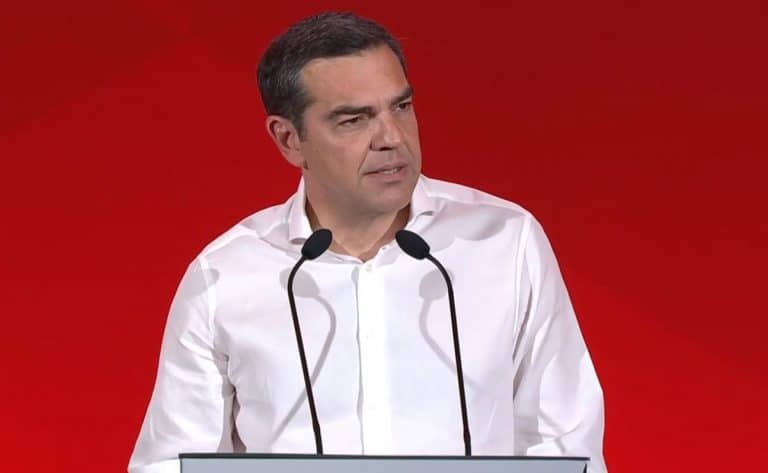

Speaking at Harvard’s Center for European Studies, former Greek Prime Minister Alexis Tsipras outlined four major proposals for reforming the EU’s fiscal architecture to enhance its strategic autonomy.
Tsipras has been appointed as a short-term, resident Policy Fellow of Harvard University’s Minda de Gunzburg Center for European Studies (CES) and The Center for Hellenic Studies (CHS) during the spring 2025 academic term.
Addressing a packed auditorium, he discussed Europe’s evolving geopolitical landscape, the challenges of transatlantic relations, and the need for a stronger, more independent EU.
Moderated by Professor Peter Hall, the discussion covered a broad range of global developments, including the situation in Ukraine, the Middle East, and the broader implications of recent political shifts. Tsipras emphasized the necessity of strengthening the EU’s role on the world stage while maintaining dialogue with the United States, regardless of NATO’s future.
Tsipras resigned from the SYRIZA leadership in June 2023 after the crushing defeat his party suffered in the Greek elections. The once-powerful SYRIZA won just 17.84 percent of the vote. “It is necessary to invent a new SYRIZA that will read the new challenges of the time and meet the expectations”, he noted.
To address emerging challenges, Tsipras proposed four key measures:
Tsipras stressed that issuing common European debt is essential not only in times of crisis but as a long-term necessity for economic and political stability. He also criticized the current ReArm Europe initiative for lacking a true vision for a common defense strategy and warned against weakening EU cohesion funds.
On Ukraine, Tsipras advocated for a revised strategy that prioritizes European integration over NATO expansion. He called for:
He emphasized that post-war Europe must develop a new security framework that both deters Russian aggression and fosters diplomatic dialogue. He also urged EU leadership to maintain mutual respect with the US, cautioning against transatlantic interference in European affairs.
Tsipras warned of the far right’s growing influence, attributing it to economic mismanagement and political failures. He argued that:
To combat this trend, he called for a comprehensive European migration policy that balances humanitarian concerns with security needs. He pointed to Greece’s past approach, which combined legal resettlement programs with controlled returns, as a model for EU-wide migration policy. He also criticized European leaders for failing to defend democratic values, allowing authoritarianism to grow unchecked.
Addressing the Israeli-Palestinian conflict, Tsipras urged Europe to take decisive action, including:
On Turkey, he called for a firm response to political repression, particularly the treatment of Istanbul Mayor Ekrem Imamoglu. He warned that the EU cannot uphold its credibility if it applies double standards, especially when addressing democratic backsliding in Ankara.
Tsipras concluded with a call for a strategically autonomous Europe—one that is not just a force of deterrence but also of peace and stability. His key takeaways included:
By advocating for bold economic and geopolitical reforms, Tsipras positioned himself as a proponent of a stronger, more united, and self-reliant Europe in an era of global uncertainty.
